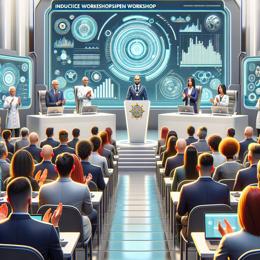Image created by AI
UCT Senate Deliberates Boycott of Israeli Academic Institutions Amidst Moral and Pragmatic Concerns
The University of Cape Town (UCT) has found itself in the throes of a fraught debate, as its Senate contemplates a potential academic boycott of Israeli institutions, a move steeped in controversy and complexity. This comes in the wake of several motions being put forward, aiming to heed a call for moral responsibility in response to the events unfolding in Gaza. The motions, however, reach deeper than the immediate political crisis—they beckon the university to consider not just the moral impulse but the considerable long-term implications such a boycott could spell for the university's operations and legacy.
Despite previous attempts in 2019 which saw a similar motion passed and then retracted, the discourse within the Senate has reopened, suggesting a division not only in opinion but in the interpretation of the institution's role in global geopolitical matters. The discussions underscore a central concern: Can—and should—a university in the Global South attempt to harness its academic relationships as a vessel for political change in conflicts that lie beyond its direct sphere of influence?
The proposal, as debated on 8 March, entails a comprehensive disengagement from Israeli academic institutions until certain conditions are met involving their stance on the situation in Palestine. Critics within the Senate argue that the ramifications of such a move would ripple across the academic fabric of UCT, potentially jeopardizing its financial stability, international collaborations, and the scholastic opportunities available to its students and staff.
The Senate must walk a tightrope, balancing the university’s mission to foster academic freedom against the risks of financial and reputational damage. Moreover, the literal interpretation of the boycott could have extreme and immediate consequences, such as expelling students funded by Israeli institutions or severing ties with multi-national entities like the World Bank.
The proposal also demands that UCT define and determine what constitutes an institution’s “clear” or “categorical” condemnation of the issues at hand, a stipulation that adds ambiguity and the prospect of intricate policy-making for the university's involvement with its international counterparts.
As with many academic institutions globally, Cape Town's premier university plays a pivotal role in the cultivation of knowledge and intellectual discussion, both of which can significantly contribute to moral debates and societal progress. However, the Senate is now tasked with considering whether an academic boycott is the most effective conduit for such contributions, especially when weighed against the institution’s core educational and research functions.
Amid the emotionally charged context—with chants of protesters punctuating the intense discussions—the university grapples with how to navigate this complex moral and political terrain. It's an exercise in exploring not only the power and limits of academic influence but also the prudent stewardship of the university's resources for sustaining its century-old mission of education and innovation.
The Senate is faced with a decisive vote that treads beyond the realm of higher education into the prickly surface of international politics and human rights advocacy. As they cast their ballots secretly, members of the Senate are entrusted with a fiduciary duty to the institution, and beyond it, to the stakeholders spanning the local, regional, and global spectrum. The outcome of this vote will either affirm UCT's stand as a moral agent within the academic community or reassert its focus on the preservation and enhancement of its academic capacities.










